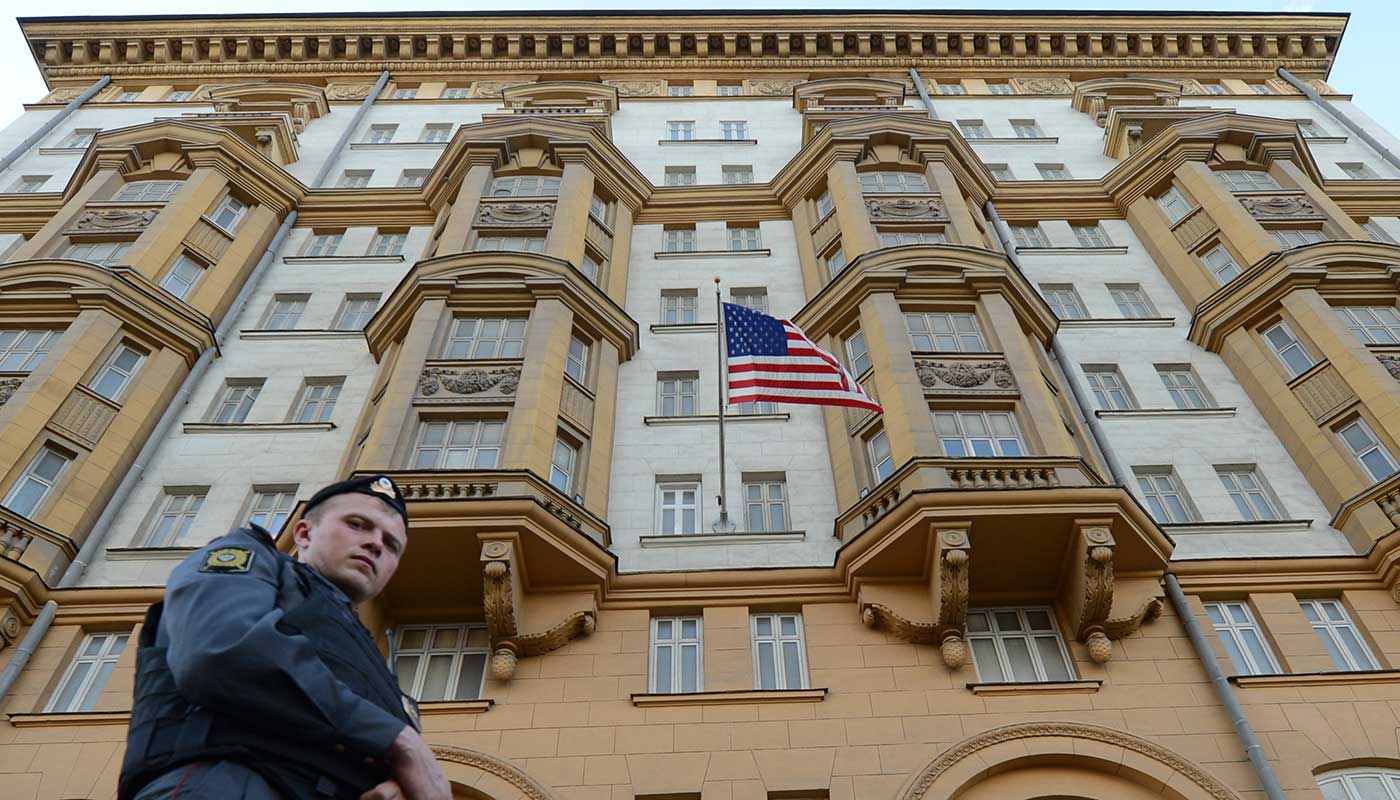‘Russian spy’ caught working at US embassy
Woman reportedly worked at Moscow embassy for ten years before being discovered

A free daily email with the biggest news stories of the day – and the best features from TheWeek.com
You are now subscribed
Your newsletter sign-up was successful
A Russian woman who worked inside the US embassy in Moscow for more than ten years has been accused of spying.
The unidentified woman, who was fired in 2017 after her security clearance was revoked, reportedly had access to the secret service’s intranet and email systems, potentially giving her access to confidential information, including schedules of the US president and vice-president.
The woman first came under suspicion in 2016, following a “routine security sweep conducted by two investigators from the US Department of State’s Regional Security Office”, who discovered she had “regular and unauthorised meetings with members of the FSB, Russia’s principal security agency”, The Guardian reports.
The Week
Escape your echo chamber. Get the facts behind the news, plus analysis from multiple perspectives.

Sign up for The Week's Free Newsletters
From our morning news briefing to a weekly Good News Newsletter, get the best of The Week delivered directly to your inbox.
From our morning news briefing to a weekly Good News Newsletter, get the best of The Week delivered directly to your inbox.
Maria Butina: alleged Russian spy ‘offered sex’ for political access Translator invited into Downing Street suspected of being Russian spy Beware of Russian honeytraps, MI5 tells UK business
A senior administration official told CNN: “We figure that all of them are talking to the FSB, but she was giving them way more information than she should have.”
The Regional Security Office reportedly alerted the secret service of its findings in January 2017. However, the woman continued to work at the embassy for some time before the secret service “decided to let her go quietly months later, possibly to contain any potential embarrassment”, says The Guardian.
The woman had her security clearance revoked and she was dismissed shortly before a number of US embassy staff were expelled by Moscow, following US sanctions against Russia.
The secret service issued a statement that “did not deny she was a mole, but downplayed her role” at the embassy, reports The Daily Telegraph.
A free daily email with the biggest news stories of the day – and the best features from TheWeek.com
-
 Film reviews: ‘Wuthering Heights,’ ‘Good Luck, Have Fun, Don’t Die,’ and ‘Sirat’
Film reviews: ‘Wuthering Heights,’ ‘Good Luck, Have Fun, Don’t Die,’ and ‘Sirat’Feature An inconvenient love torments a would-be couple, a gonzo time traveler seeks to save humanity from AI, and a father’s desperate search goes deeply sideways
-
 Political cartoons for February 16
Political cartoons for February 16Cartoons Monday’s political cartoons include President's Day, a valentine from the Epstein files, and more
-
 Regent Hong Kong: a tranquil haven with a prime waterfront spot
Regent Hong Kong: a tranquil haven with a prime waterfront spotThe Week Recommends The trendy hotel recently underwent an extensive two-year revamp
-
 Epstein files topple law CEO, roil UK government
Epstein files topple law CEO, roil UK governmentSpeed Read Peter Mandelson, Britain’s former ambassador to the US, is caught up in the scandal
-
 Iran and US prepare to meet after skirmishes
Iran and US prepare to meet after skirmishesSpeed Read The incident comes amid heightened tensions in the Middle East
-
 Israel retrieves final hostage’s body from Gaza
Israel retrieves final hostage’s body from GazaSpeed Read The 24-year-old police officer was killed during the initial Hamas attack
-
 China’s Xi targets top general in growing purge
China’s Xi targets top general in growing purgeSpeed Read Zhang Youxia is being investigated over ‘grave violations’ of the law
-
 Panama and Canada are negotiating over a crucial copper mine
Panama and Canada are negotiating over a crucial copper mineIn the Spotlight Panama is set to make a final decision on the mine this summer
-
 Why Greenland’s natural resources are nearly impossible to mine
Why Greenland’s natural resources are nearly impossible to mineThe Explainer The country’s natural landscape makes the task extremely difficult
-
 Iran cuts internet as protests escalate
Iran cuts internet as protests escalateSpeed Reada Government buildings across the country have been set on fire
-
 US nabs ‘shadow’ tanker claimed by Russia
US nabs ‘shadow’ tanker claimed by RussiaSpeed Read The ship was one of two vessels seized by the US military